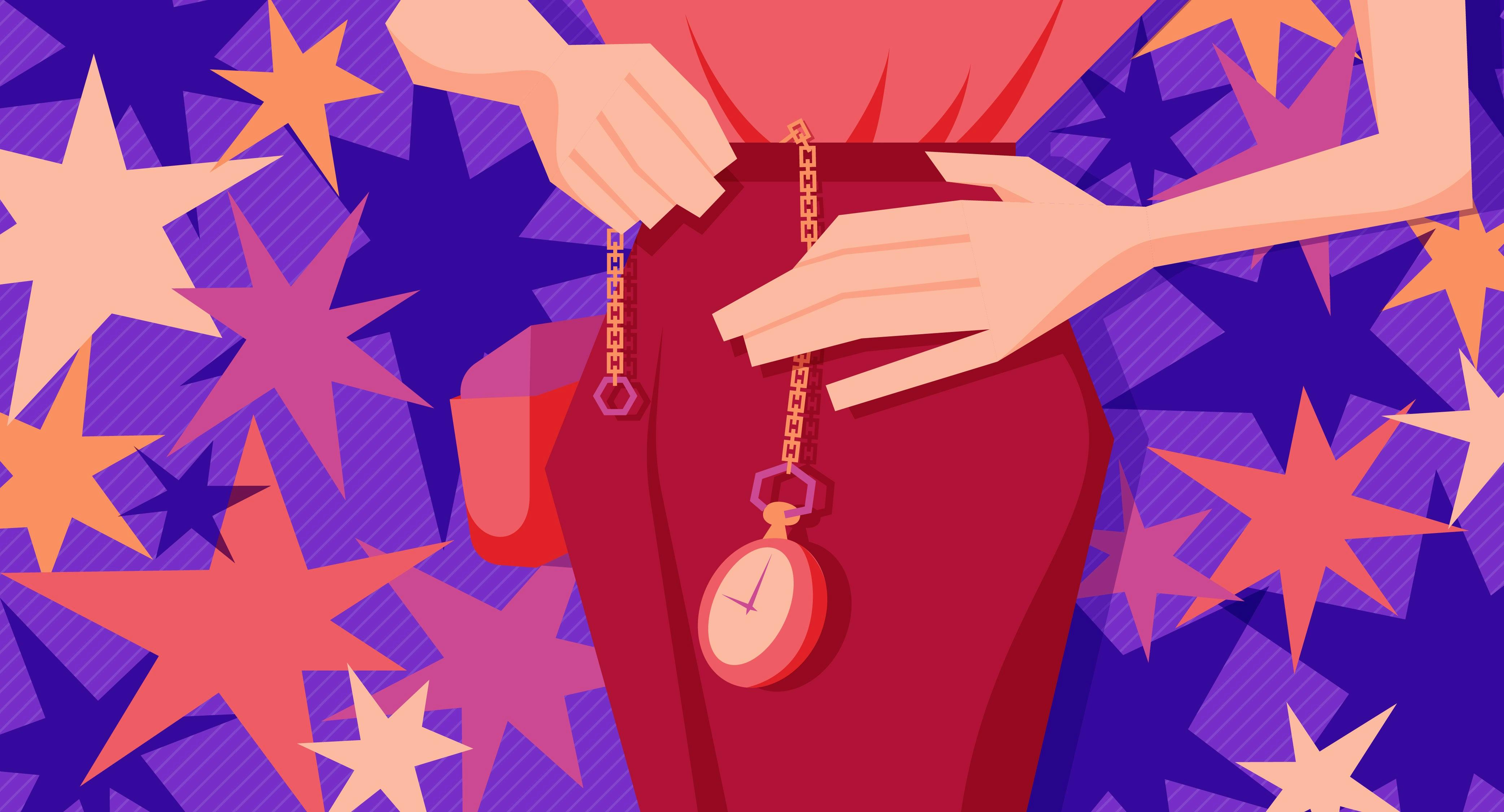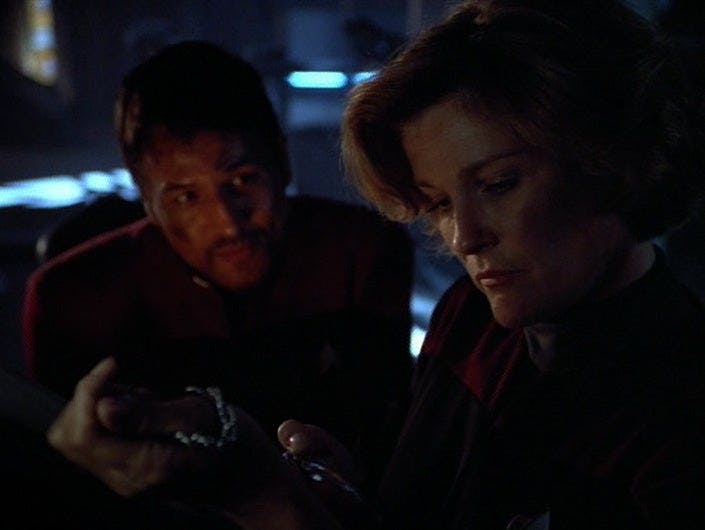Published May 20, 2021
Remembering our Year of Hell
Captain Janeway’s birthday is on May 20th. We’ll remember our pandemic birthdays, but do we really want to?

StarTrek.com
When we learn that Captain Kathryn Janeway’s birthday is on May 20th, 315 years from now in the year 2336, it’s during an alternative timeline — Janeway won’t remember that birthday.
Birthdays mark the passage of time, so if it feels like nothing much happened, does that mean your birthday didn’t really happen either? Or to put it a different way, should we really be counting years that are lost to us? Janeway has no idea what she’s missing because the timeline in “Year of Hell” was reset — it literally never happened. But as much as we might like to call a do-over, we have no choice but to remember everything that’s happened during our own pandemic hell year.
Janeway initially rejects her birthday gift from Chakotay when he gives it to her. “It’s beautiful,” she tells him politely, before asking him to recycle the pocket watch back into the replicator to save resources. They are hunted by a mad scientist named Annorax, who’s determined to erase them from history as he chases his dream of restoring “every blade of grass” of his people’s lost empire. Voyager is under constant attack and the ship is falling apart, and Janeway’s pragmatism doesn’t allow for the excess of birthday presents.
There’s always a dark undercurrent to Voyager: they’re alone, there’s no backup, and the odds are against them. Either Janeway and her crew find a way out of whatever predicament they’re facing that week, or they will die in the cold of space, far from home. Janeway knows how to get the job done: stick together, lean on your values, and make allies. But this is the “Year of Hell”, the season four two-parter where Voyager is so constantly under siege that Janeway has forgotten what month it is, let alone that it’s her birthday.

StarTrek.com
After 200 years, Annorax has pushed past the barrier of pain and reached the philosophical stage of his strange existence: "Anger is one of [time’s] moods — anger, and the desire for retribution, vengeance. Time itself has tried to punish me for my arrogance,” he complains, paranoid. “It has kept me from my wife, denied me my future!” If you’ve been among the luckier ones this year and remained healthy, spending the pandemic being “only” stressed and bored, maybe you’ve had time to ponder the “moods of time” too. We have all lost so much this year. Were it not for the fact that this experience is entirely communal, we too might have been tempted to feel like it was a personal slight.
The Voyager crew are no strangers to difficulty, but as what Janeway initially calls a week of hell looks to be turning into a year, morale starts to tank; the replicators and environmental controls are on the fritz, and the ship is barely habitable. It’s hard enough being separated from your loved ones with no idea when you can see them, but even the most resilient person starts to crack when you can’t shower and have to eat emergency rations for months with no end in sight. We need things to look forward to, or time starts to feel like a threat.
Janeway never actually recycles the pocket watch, instead tying it to her waistband after Chakotay is taken captive. It becomes a symbol of hope on this now dark and broken ship. After she exposes herself to burns to save the ship, Janeway is covered in scars and the Doctor diagnoses her with trauma. But Janeway never has to resolve this damage: when the solution comes, it’s by destroying Voyager and resetting the timeline. The Year of Hell never actually happened.

StarTrek.com
“This is a year I’d like to forget,” says Janeway as she sets Voyager for its final run — and she does forget. When it’s her birthday again, Chakotay will give her that same pocket watch. But even though Janeway doesn’t remember that birthday, it still counts, doesn’t it? Star Trek is full of timelines that never were, or that only some people remember. In “Shattered”, Chakotay retains the memories of the alternate timeline but Janeway doesn’t. “Strange,” she says to him, “a piece of your life you don’t know anything about.”
As neat as it is to watch the ship snap back to its perfect self at the end of the episode, it feels strange to watch that now, after the pandemic year. This experience has changed us, and the idea of not having to deal with the consequences feels too innocent. We’ve just watched the Voyager crew go through fire, but without reflection, that year delivered no growth, only trauma.
In the real world, there won’t be a clean ending to our pandemic year of hell — we have to live with everything that happened this year. Even if it felt like our lives were on hold, the birthdays we had during the pandemic year still counted. We need time to reflect on how this year has changed us, and unlike on Voyager, we will get that chance. For better or worse we will remember our year of hell, and at some point in the future, the moods of time will shift.
Jessica Furseth (she/her) is a journalist living in London, UK. She writes about culture, how technology is changing the way we live, agency around health, and urbanism. She’s on Twitter @jessicafurseth.

